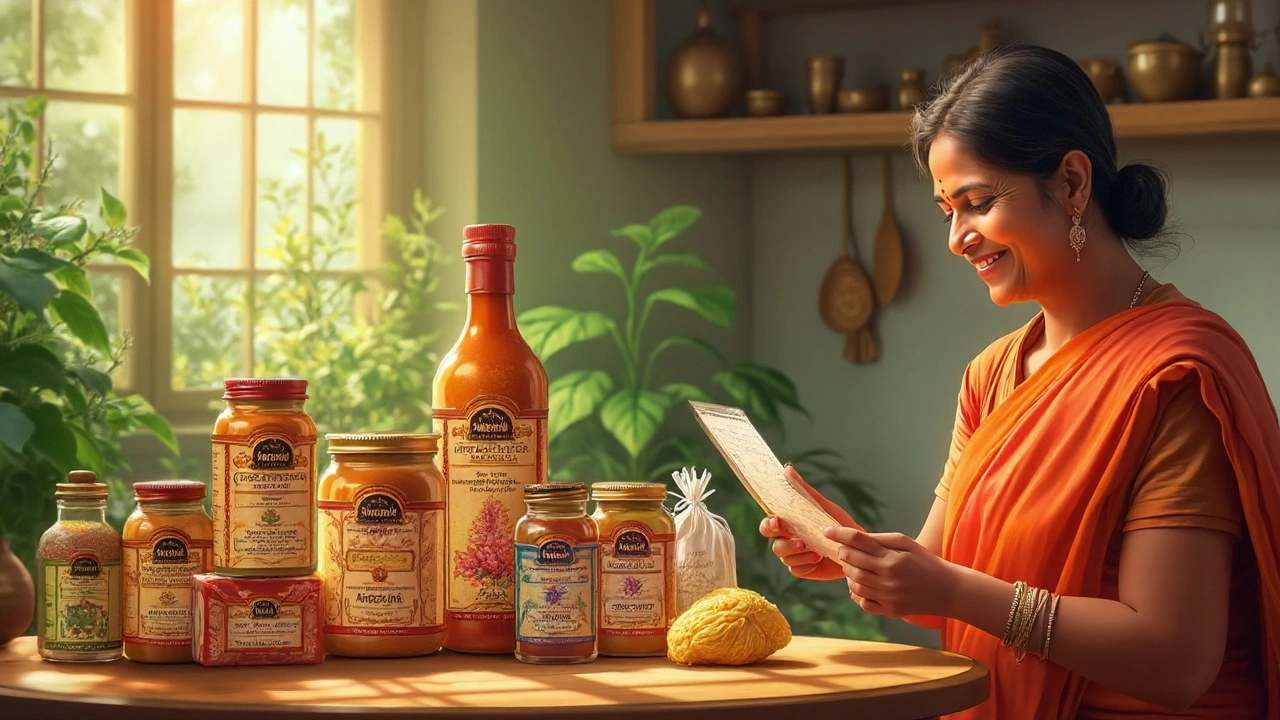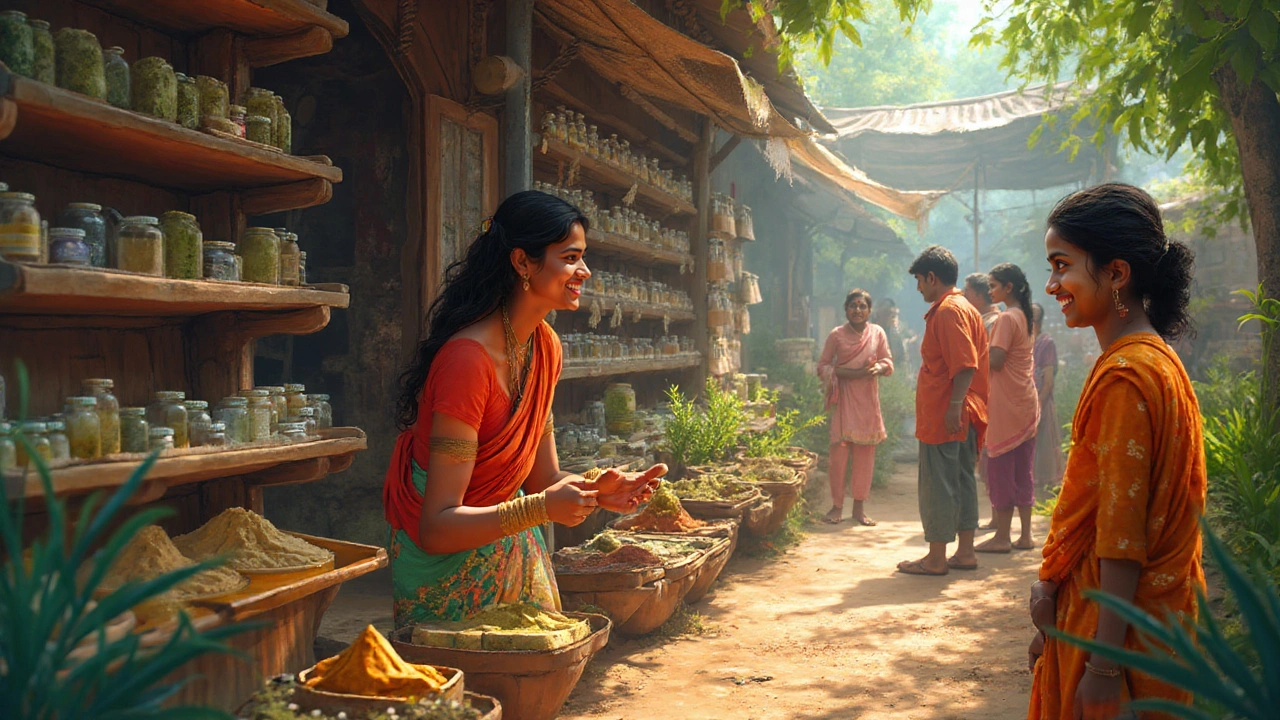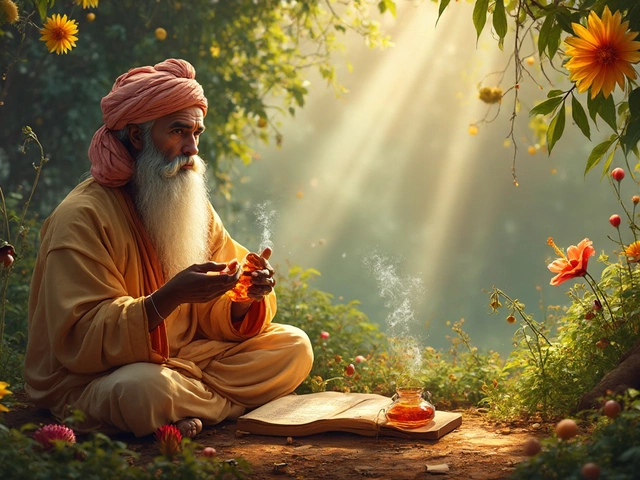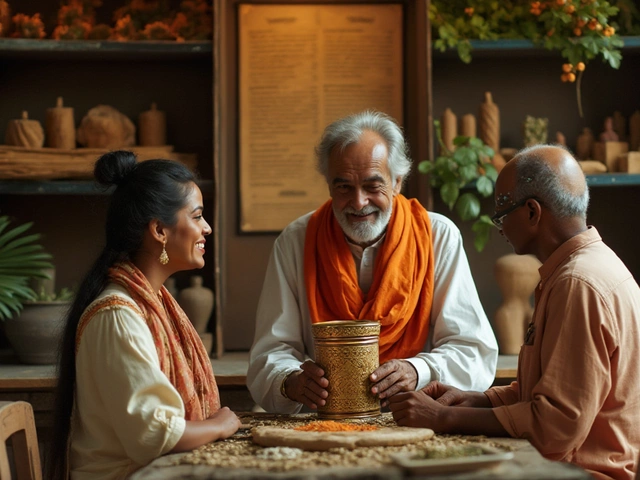- Home
- Herbal Medicine
- Best Herbal Companies: Top Brands Reviewed for Quality and Trust

Best Herbal Companies: Top Brands Reviewed for Quality and Trust
Ever walked into a health store and felt bombarded by endless shelves of herbal supplements, all promising miracles? Or maybe you've scrolled through countless websites with each brand claiming to be the best herbal company in the business. Here's an uncomfortable truth: not all herbal brands are made equal. From clever marketing to bold health claims, picking the right herbal company can be more confusing than learning to cook a fancy five-course meal. Some brands actually deliver, while others ride the trend wave with little proof behind their products. Ready for the inside scoop? Here's everything you should really know before you invest your money—or your health—in a bottle of herbs.
How to Judge a Herbal Company: What Really Matters
Your body deserves more than untested powders and fancy labels. So, what really sets the best herbal company apart? First off, transparency. A reputable herbal brand should list every ingredient clearly, including the plant's scientific name. Always check for certifications like GMP (Good Manufacturing Practice), ISO, and sometimes even USDA Organic. These tell you, "Hey, someone independent actually checked this." Fancy ads on social media can look convincing, but lack of third-party testing often means you’re just getting sprinkled leaves and wishful thinking in a bottle.
Regions matter, too. Take India, for example—the world's largest producer of medicinal herbs. When a company sources directly from organic, pesticide-free farms, the end product is usually much better quality. Don’t fall for vague labels like 'naturally sourced.' Real commitment means showing you where the herbs grow and how they're processed.
Another eye-opener? Batch testing. Reliable brands don't just test their raw ingredients—they test the finished product for purity, heavy metals, and toxins. Steer clear of anyone who can’t provide you with a Certificate of Analysis (CoA) for your product. Even big-name brands have been caught with contaminants, so this step really does matter.
Curious about the numbers? According to 2024's International Herbal Quality Survey, only 28% of examined global herbal companies offered easily accessible batch-wise lab results to consumers. So if your brand publishes lab data, you know they're rare—and likely reliable.
Don't ignore the packaging. Amber glass bottles or light-blocking containers keep herbs fresh and powerful much longer compared to see-through plastic. Even the best herbs break down fast if exposed to sunlight or air.
Word of mouth is underrated. If a friend or a trusted doc had a great experience, that matters way more than a paid influencer's glowing selfie. Now, let’s dig into the most popular herbal companies and see who’s living up to the hype.
The Most Trusted Herbal Brands in 2025
Every herbal aisle has a few names that just keep popping up. Some have been around for generations; others went viral recently thanks to TikTok doctors and fitness gurus. While this isn’t a definitive ranking, here are some top performers, based on lab strength, transparency, and—and let's be honest—how well their stuff actually works for real people.
- Himalaya Herbal Healthcare – Out of India, these folks have been around since the 1930s. Their herbs, including Ashwagandha and Liv.52, are sold in 100+ countries. Himalaya is famous for its R&D: they operate one of the biggest private herbal research labs globally, with over 200 scientists. They publish regular clinical trials, which is rare in the herbal world.
- Nature’s Way – This American brand is a regular in pharmacies for a reason. Their products are non-GMO, and every plant batch is screened for potency. They use a “Tru-ID” DNA fingerprinting process to guarantee you’re getting the right herb—no cheap fillers allowed.
- Patanjali Ayurved – Started by yoga teacher and television personality Baba Ramdev, Patanjali is a household name in India. They offer ayurvedic and herbal supplements at affordable prices. While sometimes in the news for marketing drama, their massive reach means strict government inspections. Plus, each batch carries a unique code you can use to check authenticity online.
- Gaia Herbs – American, organic, and big on sustainability. They offer farm-to-bottle traceability, letting you look up your herb’s journey online with a lot number. Their turmeric and ashwagandha blends get high marks for effectiveness in independent consumer reviews.
- Banyan Botanicals – Best known for their commitment to organic sourcing and their transparency, Banyan’s website even lets you check detailed sourcing practices for each product. Their customer education is top-notch, which is awesome if you’re new to Ayurveda.
Here’s a quick at-a-glance comparison of some key brands:
| Brand | Founded | Country | Key Products | Lab Testing | Transparency |
|---|---|---|---|---|---|
| Himalaya Herbal Healthcare | 1930 | India | Ashwagandha, Liv.52, Cystone | Yes (batch tested) | High (clinical studies) |
| Nature's Way | 1969 | USA | Echinacea, Sambucus, Turmeric | Yes (third party) | High (DNA verification) |
| Patanjali Ayurved | 2006 | India | Amla Juice, Giloy, Chyawanprash | Government regulated | Moderate (batch codes) |
| Gaia Herbs | 1987 | USA | Turmeric, Ashwagandha, Black Elderberry | Yes (third party) | High (online traceability) |
| Banyan Botanicals | 1996 | USA | Triphala, Brahmi, Ashwagandha | Yes (batch tested) | High (transparent sourcing) |
Big names don’t always mean best for everyone. For instance, Patanjali’s accessible prices won my cousin over, but Priya swears by the farm-to-bottle purity at Gaia Herbs. Reading a few real-world experiences can help you spot which brand matches your values and expectations.

Popular Misconceptions About Herbal Brands
The herbal industry is full of wild claims. You’ll find some brands guaranteeing overnight relief or magical weight loss, which should always make you back away slowly. Here are a few traps people still fall for:
- Herbs are always safe: Herbs can interact with other drugs, cause allergies, or even be toxic in large doses. Pure doesn’t equal harmless.
- Expensive equals better: Sometimes you're just paying for the packaging or the celebrity behind the brand. The best herbal company is one that’s transparent and certified, not just pricy.
- All herbal products are natural: Without strict global rules, some supplements sneak in synthetic ingredients, sugar, or hidden preservatives.
- Lab tests are universal: Not every market regulates herbs equally. Europe and the US have decent controls, but in many countries it’s the Wild West. Always check if your herbal medicine is tested locally.
There’s fresh movement toward regulation in 2025, but major gaps persist. For example, a 2023 study by the University of California found that 34% of supplements tested in local stores had less active ingredient than promised on the label. So trust, but verify—especially with small online sellers.
Another classic: “My friend took this herbal tea and it worked wonders for her arthritis—so it must work for everyone!” We’re all built differently. What helps your buddy sleep might keep you wired. Always start slow, and if something feels off, stop and talk to someone who really knows herbs.
Questions to Ask Before Choosing Your Herbal Brand
Knowing how to evaluate brands puts you way ahead of most people. But when you’re faced with a dozen choices, asking these direct questions will narrow the field fast:
- Is every ingredient listed—including plant part and Latin names?
- Does the company offer batch testing? Can you see CoA results online?
- Are their herbs wild-harvested, organic, or third-party certified?
- What’s the founder’s background? Medical, scientific, or just business?
- Do they have a solid customer service record? Check Google reviews and Reddit threads.
Cut through hype by also looking at how a brand handles recalls, negative publicity, or customer complaints. Great companies own their mistakes instead of hiding them. I remember Himalaya pulled back a product a few years ago after a shelf-life study flagged a small issue. They didn’t dodge accountability—won a lot of trust in the process, and that says a lot in a business where reputation means everything.

Tips for Finding Quality Herbal Products in 2025
So what’s the practical takeaway? Start by making a short list of your must-haves—maybe non-GMO, vegan sourcing, or female-led management. Use comparison tools like Labdoor or ConsumerLab, which publish reports on top-selling herbal brands. If you have a local herbalist you trust, get their pick. They’re usually the first to spot dodgy new entrants or brands with a sudden lack of stock (sometimes a red flag that batches failed quality checks).
Keep an eye out for innovation, too. Companies like Gaia Herbs have begun using blockchain technology to let you track your bottle’s journey from planting to packaging. Sounds extra, but in 2025 it’s a major game-changer for skeptical buyers who want proof at every turn.
Convenience matters a lot more than it used to. Tons of trusted brands now offer customized subscription boxes based on your health goals, with detailed info on dosages and possible side effects. This hands-on approach is especially helpful if you’re mixing more than one supplement or juggling medications.
Budget tip: In-house brands from reliable retailers sometimes use the same contract manufacturers as top shelf names. Check the Supplement Facts panel and don’t be shy—reach out to customer support or use online chatbots to grill them about testing or sourcing. The best companies love transparent questions.
Wrapping this up, remember—no single brand is 'the best' for everyone. But a few standout herbal companies do offer high-quality products, document their process, and put your safety first. The next time you’re tempted by flashy claims or that Instagram ad, circle back to this guide. Your body—and your wallet—will thank you.

Arnav Singh
I am a health expert with a focus on medicine-related topics in India. My work involves researching and writing articles that aim to inform and educate readers about health and wellness practices. I enjoy exploring the intersections of traditional and modern medicine and how they impact healthcare in the Indian context. Writing for various health magazines and platforms allows me to share my insights with a wider audience.
About
Medical Resource Center India is a comprehensive online platform dedicated to providing reliable health information and medical resources in India. Explore a wide range of articles, tips, and advice on medicine, healthcare services, and wellness. Stay informed about the latest developments in Indian medicine and access valuable insights into maintaining a healthy lifestyle. Discover expert guidance and health solutions tailored for every Indian citizen. Your go-to destination for authoritative medical knowledge in India.







